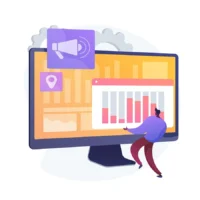How to Find a Website Developer: A Comprehensive Guide to Hiring the Right Talent
A well-crafted website is the digital storefront of any modern business. It’s the first impression, the central hub for customer engagement, and a powerful tool for growth. But for most business owners, the question isn’t whether they need a website—it’s how to build one. This is where the journey to find a website developer begins. Navigating the vast landscape of freelancers, agencies, and development firms can be daunting, but with a strategic approach, you can hire a professional who not only meets your needs but also becomes a valuable long-term partner.
This guide will provide you with a detailed, step-by-step framework to help you define your project, identify the best places to find talent, and vet candidates effectively to ensure you make the right choice. By the end of this article, you’ll be equipped with the knowledge to hire a developer who can bring your vision to life.
Step 1: Defining Your Project and Requirements
Before you even begin to look for a developer, you must have a crystal-clear understanding of what you need. Vague requirements lead to scope creep, budget overruns, and a final product that doesn’t meet your expectations. Taking the time to define your needs upfront will save you countless hours and thousands of dollars.
Determine Your Website Type
The first question to answer is what kind of website you need. This will immediately narrow down the type of developer you should be looking for.
- Static or Informational Site: A simple website with a few pages and no complex functionality. Ideal for portfolios, small businesses, or landing pages.
- Content Management System (CMS) Site: A website built on a platform like WordPress or Joomla, which allows you to easily manage content. This is a popular choice for blogs, small business sites, and online magazines.
- E-commerce Store: A site that allows customers to browse products, add them to a cart, and complete purchases. Platforms like Magento, Shopify, and WooCommerce are popular for this purpose.
- Custom Web Application: A complex, database-driven website with unique functionalities, such as a social network, a project management tool, or a booking system. These projects require a high level of expertise.
Outline Your Key Requirements
Once you’ve determined the website type, create a detailed list of your requirements. This list, often called a project brief, will serve as your blueprint.
- Features and Functionality: List every feature you need. This includes everything from a simple contact form to a complex user login system, a dynamic search bar, or an integrated payment gateway.
- Timeline and Budget: Be realistic about both. A simple site might take a few weeks, while a complex web application could take six months or more. Your budget will determine the level of expertise you can afford to hire.
- Design and Branding: Will you provide the design, or will the developer be responsible for it? Do you have an existing brand guide to follow?
- Maintenance and Support: Will you need ongoing support and updates after the project is complete?
- Technology Stack: While not always necessary for you to know, understanding the desired programming languages (e.g., Python, JavaScript, PHP) or frameworks can help you communicate better with developers.
Step 2: Exploring Platforms to Find a Website Developer
With your project defined, you can now start your search. The digital world offers a wide range of options, each with its own advantages. The choice of where to look can be as important as the person you hire, influencing everything from cost to project management style. To help you make an informed decision, we’ll explore some of the most popular platforms and their unique characteristics.
The Landscape of Developer Hiring Platforms
The platforms for hiring developers generally fall into three categories: freelance marketplaces, specialized agencies, and niche communities. Freelance marketplaces, like Upwork and Freelancer, are the most flexible and widely used. They offer a vast talent pool at various price points, from entry-level to highly experienced. Specialized agencies, on the other hand, provide a dedicated team and structured process, making them ideal for larger or more complex projects. Finally, niche communities and referrals can lead you to highly skilled professionals with proven expertise in a specific area.
The following table provides a quick overview of some of the leading platforms for hiring web development talent. This will help you identify which option aligns best with your project size, budget, and desired level of involvement.
Top Platforms to Hire Freelancers: Comparison Table
| Platform | Best For | Key Pros | Key Cons |
|---|---|---|---|
| Upwork | Projects of all sizes, from quick fixes to large builds. | Massive talent pool, integrated project management tools, and payment protection. | Quality can vary widely; requires you to vet candidates carefully. |
| Fiverr | Small, fixed-price tasks and quick gigs (e.g., logo design, simple page builds). | Gig-based model is transparent and affordable; good for quick turnarounds. | Less suitable for complex, long-term projects or custom builds. |
| Toptal | High-end, mission-critical projects requiring elite-level talent. | Rigorous vetting process ensures only the top 3% of talent is accepted. | Premium pricing and a less flexible process for smaller projects. |
| Sourcing permanent hires or contractors through professional networks. | Access to a professional network with verifiable work history and endorsements. | Not a dedicated hiring platform, so tools are less specialized than on marketplaces. | |
| Stack Overflow | Finding specialized developers through a trusted community. | A community of highly skilled, active professionals; excellent for technical roles. | Primarily a Q&A site, so the hiring process is less structured than a marketplace. |
| Codeable | WordPress-specific projects, from custom themes to plugin development. | Exclusively for WordPress experts; projects are pre-vetted to ensure quality. | Only for WordPress, so it is not a solution for other CMS or custom builds. |
| Upwork | Freelancers across all industries and project scopes. | Flexible hiring models, time tracking, and dispute resolution support. | Service fees can be high; competition can make hiring overwhelming. |
Step 3: Vetting and Interviewing Candidates
Once you have a list of potential candidates, the vetting process is crucial. This step separates the true professionals from the rest.
The Portfolio and Case Studies
A developer’s portfolio is your window into their work. Don’t just look at the final product; look at the project’s complexity and the role they played.
- Relevance: Have they worked on projects similar to yours in terms of industry or functionality?
- Quality: Is their code clean, well-documented, and efficient? While you might not be a coder yourself, you can often infer quality from the responsiveness and stability of their past work.
- Communication: Does their case study or project description clearly explain the problem they solved and the technologies they used?
The Interview Process
An interview is more than just a Q&A session. It’s an opportunity to assess a developer’s communication skills, problem-solving abilities, and overall fit with your project.
- Start with Technical Questions: Ask about their experience with the technologies you’ve specified. Ask them to walk you through a project they’re proud of.
- Assess Communication: Ask about their preferred method of communication (email, Slack, etc.) and how they handle project roadblocks or unexpected issues.
- Give a Small Test Project: For larger projects, consider paying a small fee to have them complete a minimal task related to your project. This gives you a firsthand look at their work quality and communication style.
Step 4: Making the Right Decision and Long-Term Partnership
Choosing the right developer is about more than just skills; it’s about forming a partnership. The ideal developer will be an expert who understands your business goals and can offer valuable insights.
Evaluating Proposals and Contracts
Don’t simply choose the lowest bid. A great proposal will be detailed, outlining the scope of work, project milestones, and a clear timeline. Ensure your contract includes:
- A clear project scope and deliverables.
- Milestone-based payments to protect both parties.
- Ownership of the code and intellectual property rights.
- A plan for ongoing maintenance and support.
The Importance of Ongoing Management
Your relationship with a developer doesn’t have to end once the website is launched. Websites need regular updates, security patches, and new features to remain competitive. Many business owners find it beneficial to hire a professional to manage their Magento and WordPress website long-term, ensuring the site is always up-to-date and secure. This allows you to focus on your business while a specialist handles the technical details.
Frequently Asked Questions (FAQ)
Q: How much should I expect to pay a website developer?
A: The cost varies dramatically based on the project’s complexity, the developer’s experience and location, and the payment model (hourly vs. fixed price). A simple site might cost a few hundred dollars, while a complex e-commerce platform could cost tens of thousands. Always get multiple quotes to get a sense of the market rate for your specific project.
Q: How long does it take to build a website?
A: The timeline depends on the project scope and the developer’s availability. A simple informational site might take 2-4 weeks, while a custom web application can take anywhere from 3-12 months or longer. Having a clear project plan upfront is the best way to get an accurate timeline.
Q: What’s the key to a good relationship with a developer?
A: Clear and consistent communication is the most important factor. Set expectations early, provide timely feedback, and treat your developer as a partner rather than a simple task-doer.
Conclusion
Finding the perfect website developer requires careful planning and a systematic approach. By defining your needs, exploring the right platforms, and thoroughly vetting your candidates, you can avoid common pitfalls and find a professional who is an ideal match for your project. Remember, a great website is an investment, and the right developer is the key to unlocking its full potential. With this guide, you’re now ready to start your search and build a digital presence that drives your business forward.












